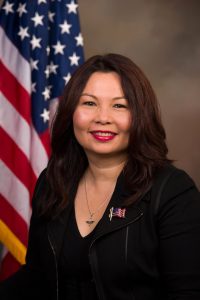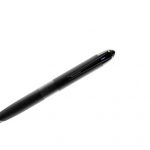March is the time of year to raise awareness the many social and cultural achievements of women. At this time, we would like to acknowledge women with disabilities past and present who continue to advocate and self-advocate. For 2018, the theme for Women’s History Month is “Nevertheless, She Persisted: Honoring Women Who Fight All Forms of Discrimination against Women.” March 8 has been declared International Women’s Day; this year’s theme is “Time Is Now: Rural and urban activists transforming women’s lives.”
According to UN Women, the UN organization dedicated to gender equality and the empowerment of women, about one in five women will experience some disability in her lifetime. Last month, we featured notable African American women who accomplished a great deal, despite their disabilities. Also for Black History Month, we acknowledged the work of Bessie Blount Griffin, who invented a self-feeding device that enabled amputees to eat independently.
Notable Women Disability Advocates Today
The United States Agency for International Development (USAID) leads the U.S. government’s assistance abroad. In that capacity, they recognize the important accomplishments of women disability advocates around the world.

Malvika Iyer lost both hands in a grenade explosion. Her message is that beauty does not mean a perfect body.
Malvika Iyer. Born in India in 1989, Malvika had a happy childhood until 2002, when she lost both hands in a grenade explosion. The pain was unbearable; so was the pity. Recovery from her physical wounds and emotional trauma was slow, but Malvika heeded her mother’s wisdom that she was no less a person because of her disability. “You don’t need a perfect body to succeed in life,” she says. Pursuing her Master’s degree in Social Work, she became the disability advocate and motivational speaker for which she is admired worldwide. “Being a person with a disability is challenging. Being a woman with a disability adds extra challenges.”
Juddy Wairimu Mirangoh. Juddy was severely injured in a car accident in 1992 in her native Kenya. Equally painful was her husband deserting her, as she “was no longer useful.” Though women with disabilities are often the poorest and most excluded, Juddy struggled to obtain a loan so she could start a business and be independent. An animal lover, she started a farm to support herself and her children. She also makes and sells beadwork bangles and earrings. Having transformed her life, she now fights for others in her community, that they can empower themselves. Juddy, along with those she helped, says, “We are demanding an opportunity. Equal opportunity, not just an opportunity. Gender equality is essential.”
Casar Jacobson. “You don’t look disabled!” Born hard of hearing, Casar eventually lost all her hearing. She has an invisible disability, which means that in addition to her everyday challenges, others often do not take her seriously. Casar won multiple pageants in her native Canada. A deaf and disability activist and advocate, last year she spoke at the United Nations, campaigning for the empowerment of women, gender equality, deaf culture, and entrepreneurship. “My biggest dream is that the world sees us as persons with a different form of communication, a different language, not a disability, so that someone who is deaf or hard-of-hearing can grow up to pursue whatever [career] they want to.”

Stella Young advocated for the dignity of people with disabilities by rejecting the notion of “inspiration.”
Stella Young. Stella Young (1982-2014) was an outspoken Australian comedian who used her sense of humor to advocate for the rights and dignity of other people with disabilities. She earned great admiration worldwide with her talks, especially “I’m not your inspiration, thank you very much.”
Haben Girma. Born in 1988, Haben Girma is an Eritrean-American woman who was the first deaf-blind person to graduate Harvard Law School. As an attorney, she has been an outspoken disability advocate for inclusion, accessibility, and Universal Design. Haben has met with Canadian Prime Minister Justin Trudeau former U.S. Presidents Barack Obama and Bill Clinton, all of whom have praised her important work as a disability advocate and self-advocate.

While serving in the armed forces, Tammy Duckworth lost both legs. Now an Illinois Senator, she continues to advocate for disabled veterans.
Tammy Duckworth. Tammy, a resident of Illinois, served in the United States Army, with a distinguished career. In 2004, while she was deployed in Iraq, Tammy lost her right leg and part of her left. Since then, serving as Illinois representative and currently as senator, Tammy has worked tirelessly advocating veterans with PTSD and other disabilities. In addition, her very presence has been a strong role model.
What all these women have in common is that they have used their disability to advocate for the well-being, independence, and full societal participation for all persons with disabilities.
Women disability advocates


